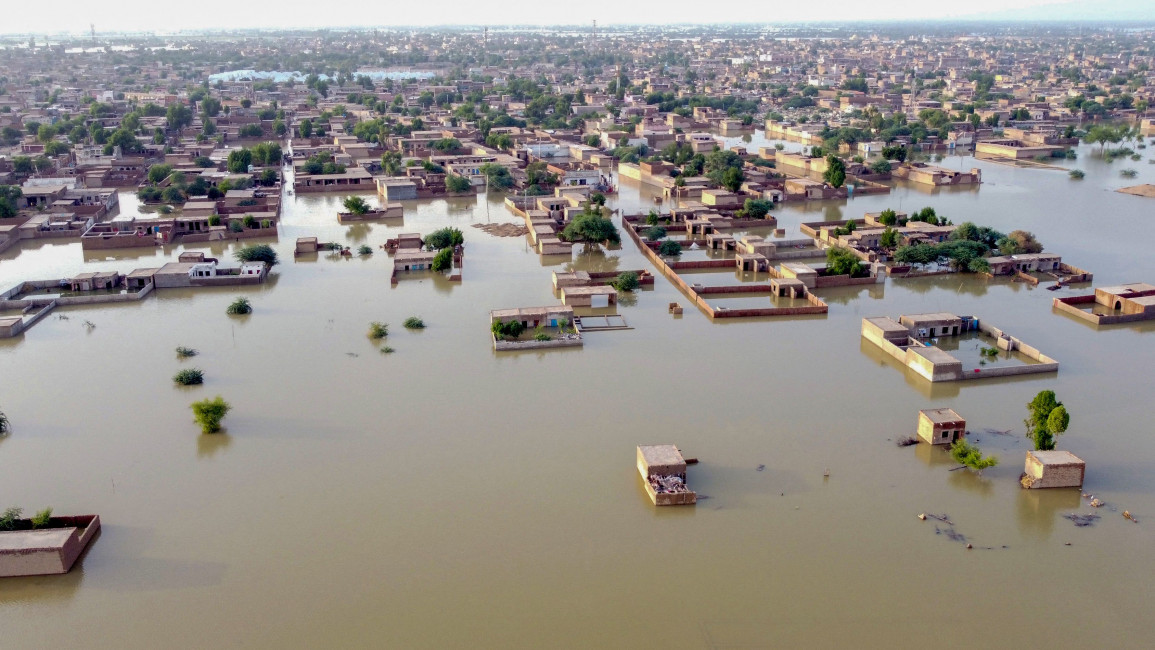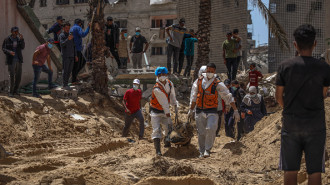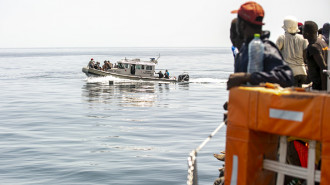It could take six months for 'climate carnage' Pakistan floodwaters to recede: UN
UN relief agencies warned on Tuesday it could take six months for floodwaters to retreat from Pakistan's worst-affected regions.
Pakistan’s floods - which began in June this year - left one-third of the country submerged in what the UN secretary-general described as "climate carnage". Much of the country continues to remain underwater.
A UNHCR representative said it could take "up to six months for floodwaters to recede" from the hardest-hit areas, such as the southern provinces of Sindh and Balochistan.
Pakistan is experiencing its worst crisis in a decade, affecting 4.2 million people. Over one-third of the country is submerged in floodwater.
— CSIS (@CSIS) September 20, 2022
Satellite images of Lake Manchar reveal the extent of the devastation. Copyright © 2022 by Planet.
Learn more: https://t.co/2btBhu8Ld7 pic.twitter.com/bSIKAxYXxi
The floods have killed more than 1,500 people so far, including 552 children according to the UN. Around eight million people have been displaced, all of whom are in dire need of basic necessities like food and shelter.
"We don't have enough food, we don’t have shelter, and still even the kind of healthcare that is required is not available," said UNICEF representative Gerida Birukila.
"Roads and bridges have been washed away; I’ve just come from the field and the water is not going anywhere."
Critical shortages of food, shelter, and healthcare compound the problems for millions of displaced, leaving them vulnerable to water-borne diseases such as gastroenteritis, acute diarrhea, dengue fever, and malaria.
At least nine more people have died from diseases in flood-hit areas of Sindh, according to a report from Tuesday, taking the total number of deaths from such infections to 318 since 1 July.
Health officials fear the situation could spiral out of control and that the situation is "beyond bleak".
The floods have further strained the lives of Pakistan's 1.3 million mostly-Afghan refugees, around 800,000 of which lived in areas hit by the catastrophe.



